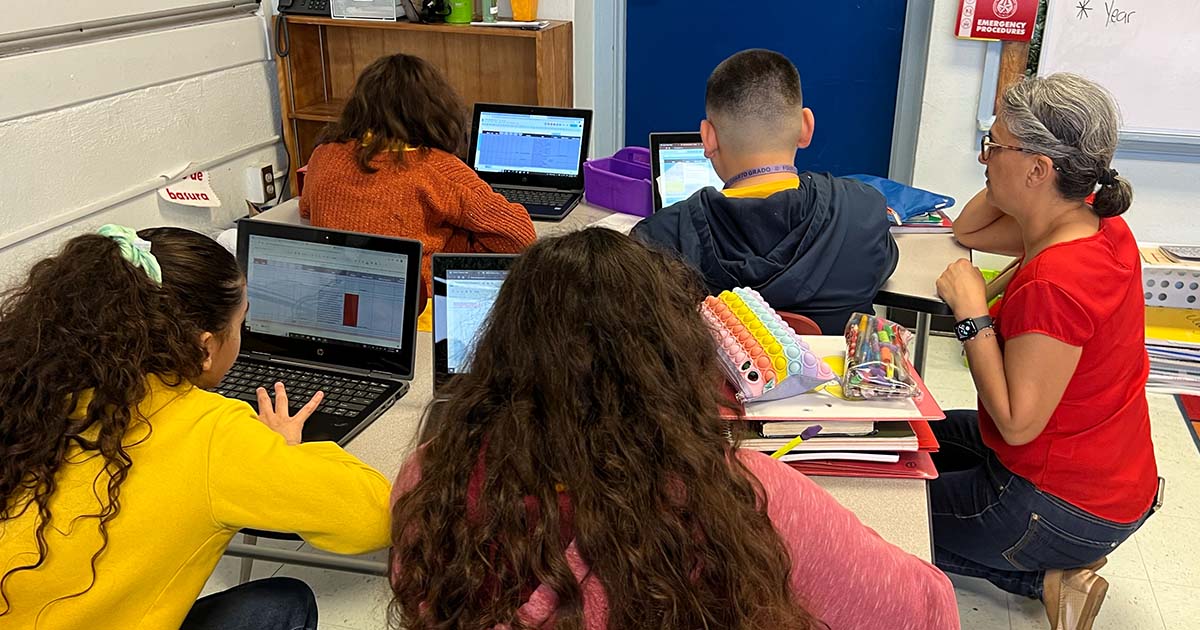Digital humanists Gabriela “Gabi” Baeza Ventura and Carolina Villarroel preserve and help Houstonians gain access to Hispanic Heritage through a digital archive housed at Arte Público Press at the University of Houston. In their efforts to engage the younger generation, they initiated a community project to make junior researchers, or “young scholars,” out of fourth graders at a local elementary school last spring.
Baeza Ventura and Villarroel addressed a significant challenge: the students who could benefit from the extensive Hispanic Heritage archives, including databases, cookbooks, poetry manuscripts and 1,500 in-house newspapers, didn’t know how to use them. In fact, they didn’t even know they existed. “Graduate students in the Department of Hispanic Studies about archives, but that’s about it,” said Villarroel, a professional archivist.
The project aligned perfectly with the curriculum taught to fourth graders in the Houston Independent School District, which focuses on Texas History. “Bringing the archive to a Texas History lesson is important because it helps Latino kids see that history writing involves various perspectives and they, too, can add to that narrative,” said Baeza Ventura.
Funding for the initiative came from the League of United Latin American Citizens (LULAC) – a 100-year-old social justice group. The David Burnet Elementary School, a dual language school near the UH campus, served as the pilot location.
A predominantly immigrant population of students explored writings from colonial times to the late twentieth century using Timeline JS, a database for creating interactive timelines. Each class of fourth graders, totaling three classes and 70 students, developed three timelines with nearly 100 entries in each. Together, the students filled an Excel spreadsheet with summaries of historical documents in their own words, enriching each entry with images from Getty images and the public domain.
An undergraduate UH student in bilingual education and Spanish will document and present this research on dual language programs, and Baeza Ventura and Villarroel will be using the project to promote bilingualism in HISD and the broader community, as the rising fifth-graders become junior researchers.
When asked about the most remarkable aspect of the project, Villarroel answered: “For the students to realize they can do this work – that we trusted them.” Notably, the students were allowed to write in whichever language they felt most comfortable working in – which was “empowering” according to the principal investigators. The work also counted toward the students’ required typing hours set by the district. But perhaps most importantly, it was exceptional for bilingual children to see that there is a Latino archive that holds thousands of records on the history of Latinos in the US, that they have knowledge and skills to produce another history, and that there are Latina leaders who are occupying positions in archives and higher education.
The project culminated in a final PowerPoint presentation, attended by fellow students, teachers and loved ones, where the students were awarded certificates recognizing their contributions as archivists. Principals across the district are looking to expand the program, allowing junior bilingual scholars to continue working on timelines focused on preserving and disseminating the rich Hispanic culture of the United States in its written form.
Image: Courtesy of Gabriela Baeza Ventura
